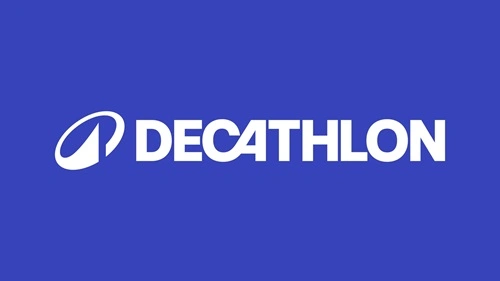Decathlon, a globally renowned sports retail brand, is a one-stop destination for all sports and fitness enthusiasts. Offering a wide range of high-quality, affordable products for over 70 sports, Decathlon has become a favorite among Indian consumers. Known for its experiential stores and customer-centric approach, the brand has rapidly expanded across India.
For entrepreneurs interested in the retail sector, owning a Decathlon franchise seems like an exciting opportunity. However, Decathlon operates on a unique business model that does not follow a traditional franchising route. This article explores Decathlon’s operational approach in India, investment requirements, and alternative opportunities for entrepreneurs looking to tap into the sports retail market.
Decathlon’s Business Model in India

Decathlon operates through a corporate-owned and corporate-operated (COCO) model worldwide, including in India. This means all stores are owned and managed directly by Decathlon itself. The company does not offer franchise opportunities to individuals or third parties. This centralized approach ensures strict quality control, operational consistency, and alignment with Decathlon’s brand values.
Cost of Setting Up a Decathlon-Like Store
While owning a Decathlon franchise is not an option, entrepreneurs can consider starting a similar sports retail business. Here’s an estimate of the investment required to set up a large-format sports retail store like Decathlon:
Initial Investment
- Real Estate Costs: Decathlon stores are typically large, with an area of 10,000 to 50,000 sq. ft., located in high-traffic zones such as malls, high streets, or standalone warehouses. Leasing or purchasing such spaces can cost:
- ₹5 lakhs to ₹30 lakhs per month for leasing.
- ₹10 crores to ₹30 crores for outright purchase, depending on the location.
- Store Setup Costs: Setting up a sports retail outlet includes expenses for interiors, shelving, technology systems, and customer experience zones. This can range from ₹2 crores to ₹5 crores.
- Inventory Costs: Stocking a variety of sports equipment, apparel, and accessories requires an investment of ₹3 crores to ₹8 crores, depending on the product range.
- Licenses and Permits: Securing retail licenses, GST registration, and municipal approvals may cost an additional ₹5-10 lakhs.
Recurring Costs
- Operational Expenses: Monthly expenses, including staff salaries, utilities, and maintenance, typically range from ₹5 lakhs to ₹15 lakhs.
- Marketing Budget: To promote the store locally and online, allocate ₹1-3 lakhs per month for advertising and promotions.
- Supply Chain Management: Efficient logistics are essential for maintaining inventory, adding to operational costs.
Profitability of a Sports Retail Store
Sports retail is a growing market in India, driven by increasing fitness awareness and participation in recreational activities. Here’s an overview of the potential profitability:
- Revenue: A well-located sports retail store can generate monthly revenues ranging from ₹50 lakhs to ₹2 crores, depending on the product range and footfall.
- Profit Margins: Retail margins for sports equipment and apparel typically range between 10-25%, depending on the product category and brand.
- Breakeven Period: Most large-format sports retail stores achieve breakeven within 2-4 years, provided they are well-managed and strategically located.
Why Does Decathlon Not Franchise?
Decathlon’s decision to avoid franchising stems from its focus on maintaining brand control and delivering a consistent customer experience. By owning and operating all its stores, Decathlon ensures:
- Uniform Pricing: Products are offered at competitive prices without additional franchise markups.
- Operational Efficiency: Centralized management enables streamlined supply chain operations.
- Customer-Centric Approach: The brand can directly oversee in-store and post-sale services to enhance customer satisfaction.
Alternative Opportunities in Sports Retail
If you’re an entrepreneur keen on entering the sports retail industry but cannot partner directly with Decathlon, consider these alternatives:
- Multi-Brand Sports Stores: Start a retail outlet featuring multiple sports brands to cater to diverse customer preferences.
- Private Label Business: Launch your own brand of sports equipment or apparel to target niche markets.
- Online Sports Store: E-commerce platforms allow you to tap into the growing demand for sports products without the need for large physical spaces.
- Distributorships: Partner with established sports brands as a distributor to supply products to retail stores and online platforms.
How to Partner with Decathlon
While owning a Decathlon franchise is not an option, you can explore indirect opportunities to collaborate with the brand:
- Real Estate Leasing: Property owners with large commercial spaces can lease them to Decathlon for store expansion.
- Supply Chain Partnerships: Businesses specializing in logistics or manufacturing can collaborate with Decathlon to supply products or streamline operations.
- Employee Training Services: Offer training programs or services for Decathlon staff to enhance customer engagement and technical expertise.
Challenges in Operating a Sports Retail Store
- High Initial Investment: Setting up a large-format retail store requires significant capital, which may deter smaller investors.
- Market Competition: The sports retail market in India is competitive, with brands like Puma, Adidas, and local players offering strong alternatives.
- Inventory Management: Maintaining an optimal stock level across multiple product categories is complex and requires efficient supply chain systems.
- Customer Retention: Providing consistent quality and superior service is critical to building customer loyalty in a competitive market.
Conclusion
While Decathlon does not offer franchise opportunities, its success in India highlights the potential of the sports retail industry. Entrepreneurs can take inspiration from Decathlon’s business model to establish their own retail outlets or explore alternative collaborations with the brand.
India’s growing interest in fitness and recreational activities provides a lucrative market for sports retail. By focusing on efficient operations, strategic location selection, and customer-centric strategies, you can carve a niche in this thriving industry and emulate the success of global giants like Decathlon.
Anantha Nageswaran is the chief editor and writer at TheBusinessBlaze.com. He specialises in business, finance, insurance, loan investment topics. With a strong background in business-finance and a passion for demystifying complex concepts, Anantha brings a unique perspective to his writing.


